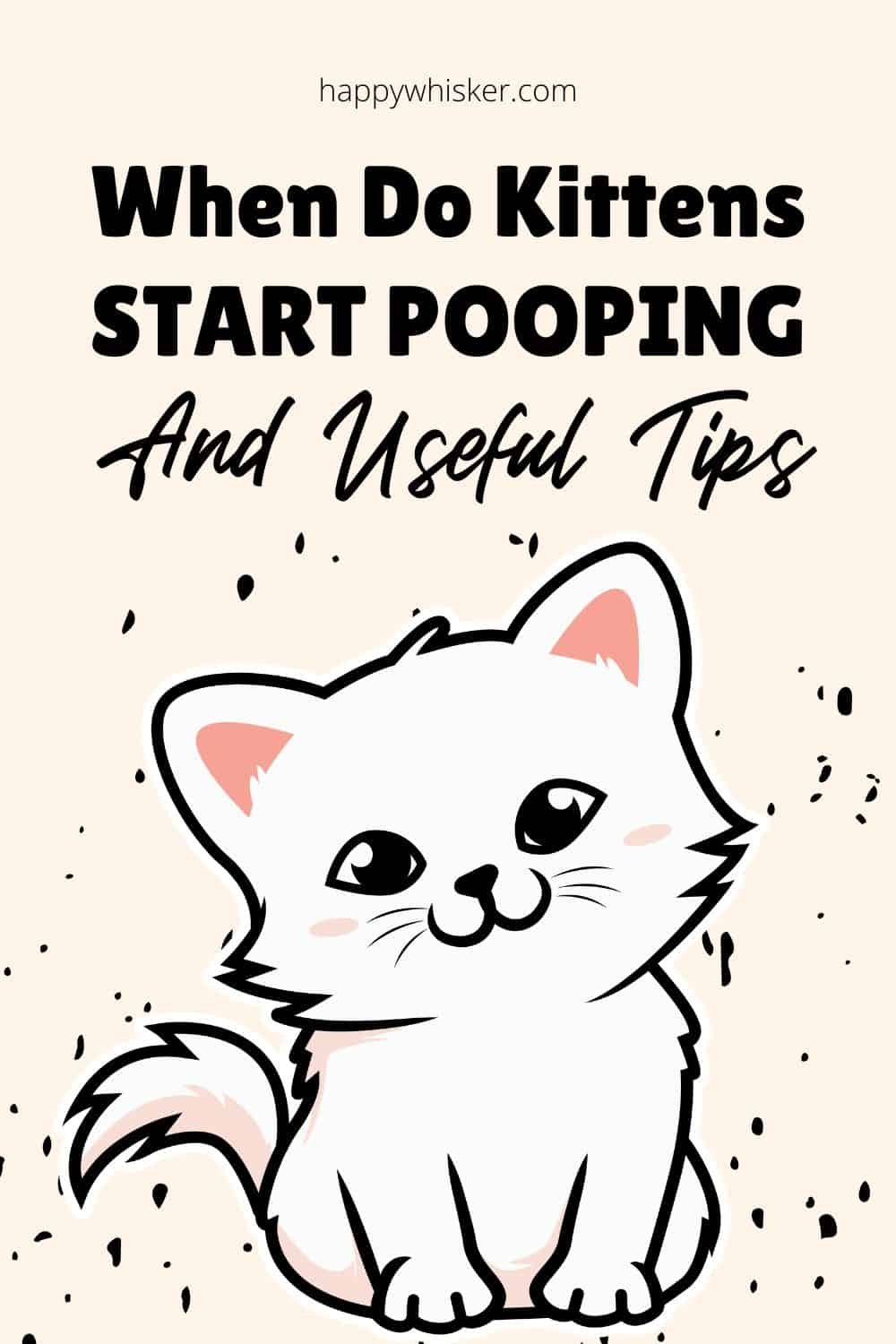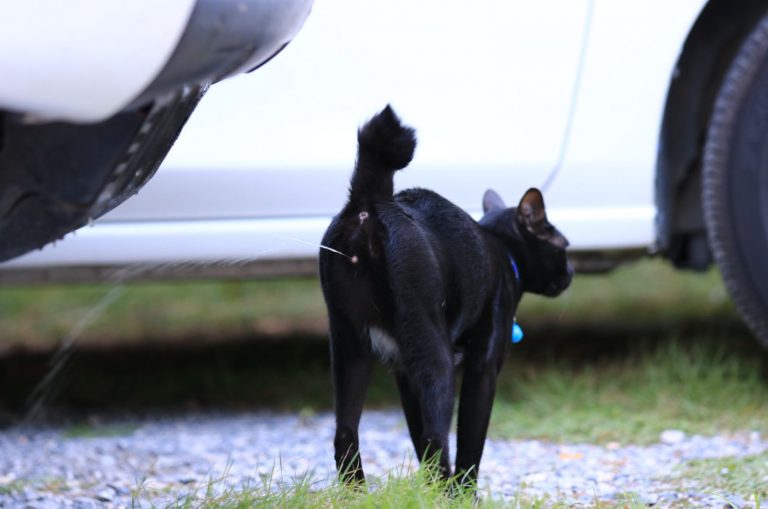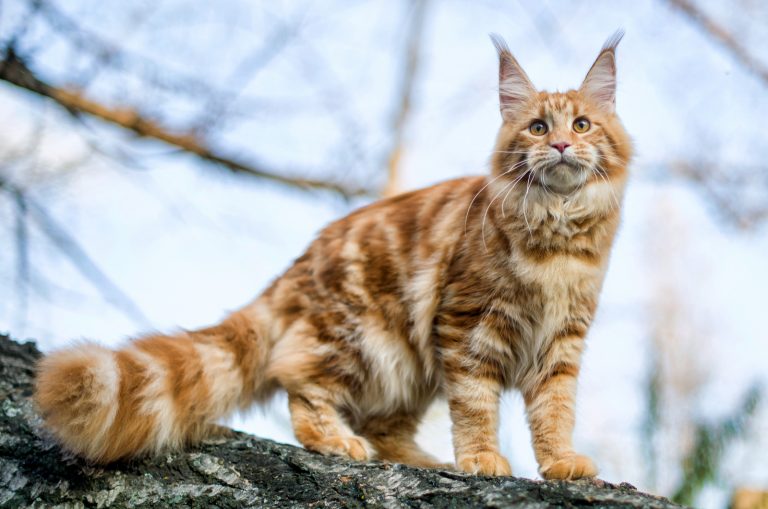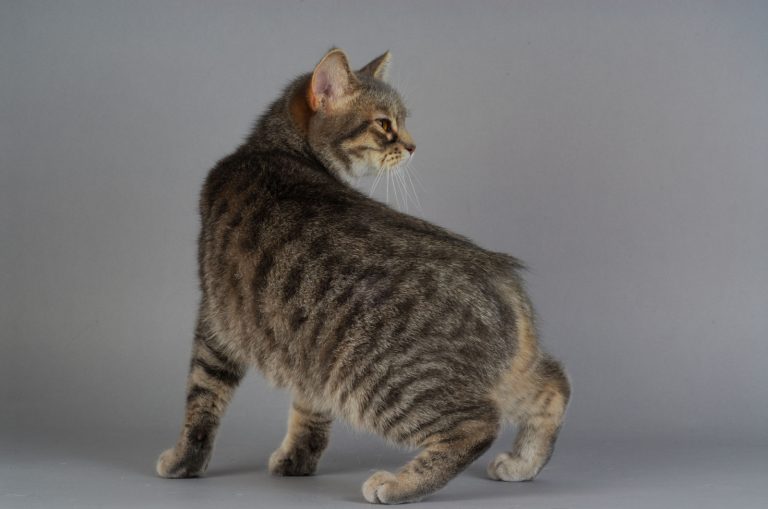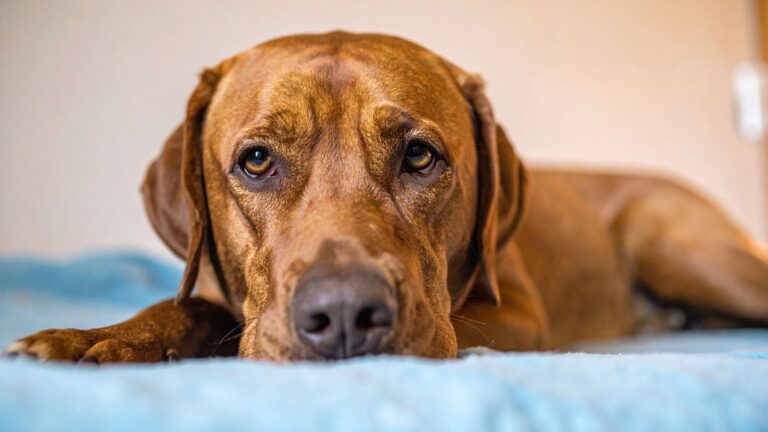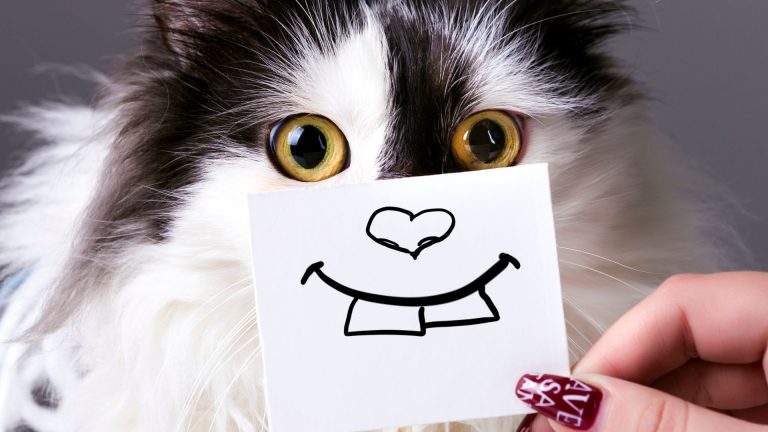When Do Kittens Start Pooping & Useful Tips
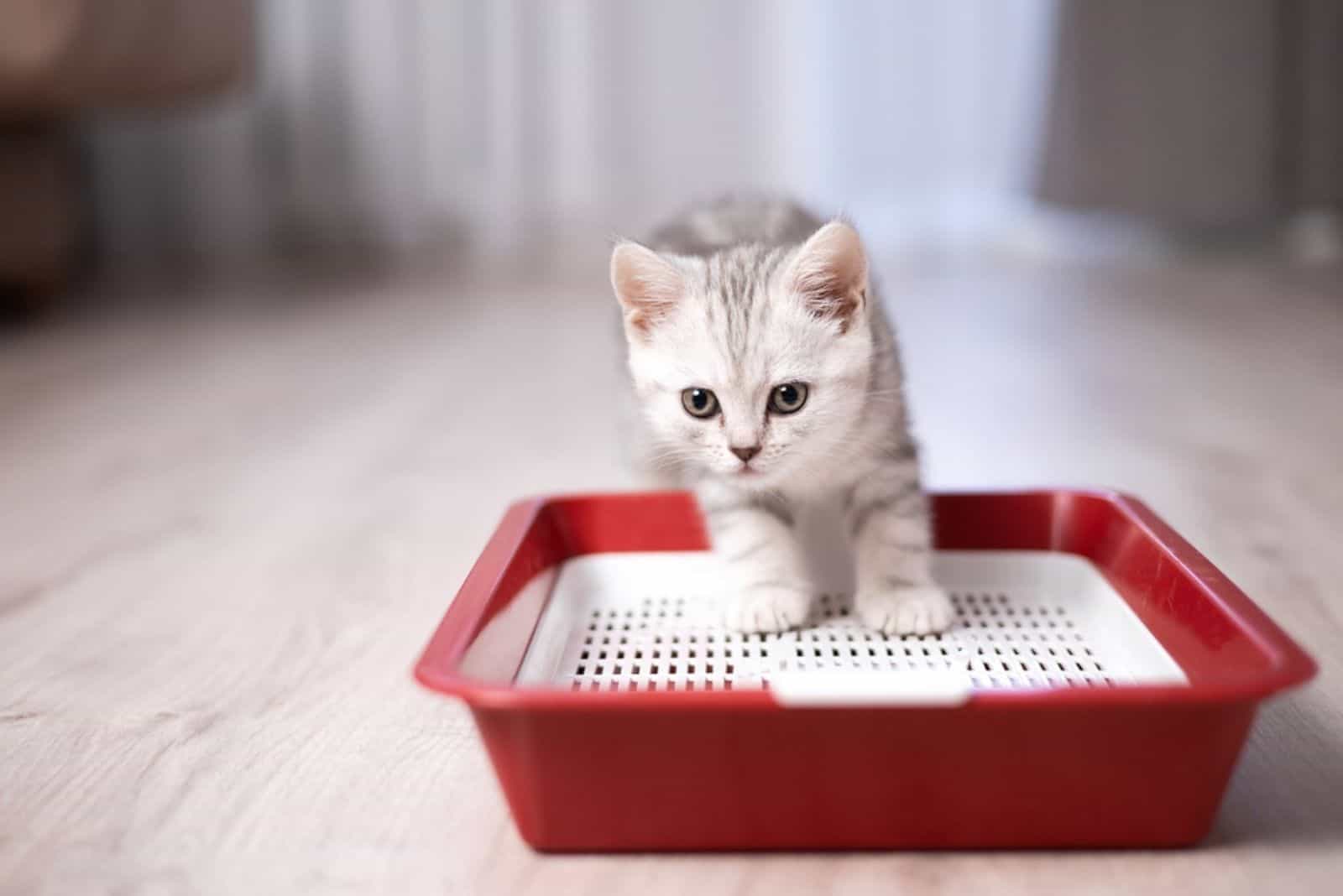
If you have a cat that recently gave birth to a litter of kittens, then dealing with newborn kitten poop isn’t really your job!
The kittens are blind and deaf for about two weeks after they’re born, and therefore, they’re helpless and need their mother cat to take care of them.
Newborn kittens aren’t able to urinate and defecate by themselves, but their mother helps them by stimulating them to do it. Nature really does take care of everything, and the natural instinct of the mother cat is so strong.
However, if you have found an orphaned kitten or a rejected kitten, then you will have to take on the role of mother cat. You’ll need to know when do kittens start pooping, what a kitten’s poop should look like, and how can you help them?
So, if you’re facing this issue, or you’re just curious, simply read on to find out everything you need to know about newborn kitten care.
When Do Kittens Start Pooping?
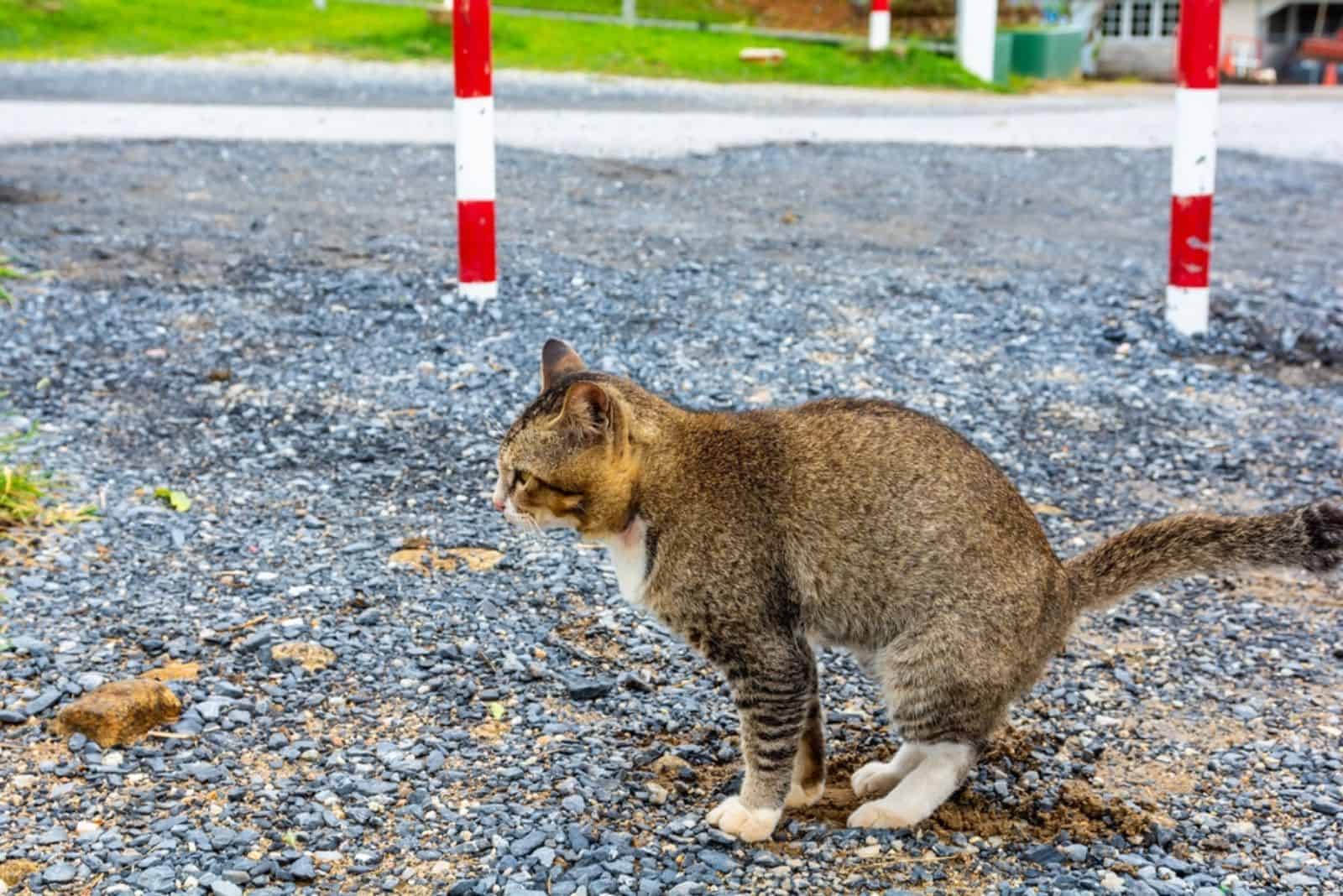
If you are wondering when do kittens start pooping, it is important to understand that they cannot poop without help in the first few weeks of their lives!
Newborn kittens cannot really do anything without their mother or foster mother, or someone that can help them. They cannot even pee or poop properly without special help, until they reach 4 weeks of age.
Before that, the mama cat stimulates them by licking them. This helps them to defecate or urinate. A healthy kitten should start pooping properly by itself when it reaches 3-4 weeks of age.
However, if the young kittens don’t have a mother, then you should take over the task of stimulating them to expel waste in order to help the poor kittens survive.
Always speak to the vet if you find yourself in this position as there are certain things that you need to know when you take that role.
Being a cat parent is a big responsibility, especially when it comes to young kittens as they require special care and a lot of attention.
To help you, I have provided you with a guide to some of the most important things that you should know when taking care of kittens, specifically what you need to know about kitten poop.
What Should A Normal Kitten Poop Look Like?
It is to know what a normal kitten poop should look like. Believe it or not, a lot of things about a cat’s health can be deduced simply by observing the cat’s poop.
A 3 weeks old kitten (and younger ones) should have firm poop, similar to the consistency of toothpaste, in a light brown or slightly yellow color. That’s the poop of a healthy kitten.
As the kittens grow older, the color of the poop should become darker and it should always be firm. Therefore, a normal cat poop should be brown in color, have a firm consistency, and it shouldn’t leave marks on the litter box.
It’s completely normal if the exact shade of brown of the cat poop varies because cat poop color also depends on the cat’s diet and type of cat food.
For example, it’s normal for a kitten’s poop to be a bit lighter. As the kitten grows and starts eating wet solid food or dry food (or ideally a combination of the two) you may notice that the poop color becomes darker.
Now that you know when kittens start pooping and what a normal kitten poop should look like, you will be able to recognize when the poop is an unusual color, because this is not a good sign.
Cat poop may be several different colors, each of which may indicate various health issues which may require veterinary attention.
It is important to pay close attention to your cat’s feces, especially when they are kittens, as it can provide very helpful insight into your kitten’s health condition.
See Also: Where Should My Kitten Sleep On The First Night?
What Kitten Poop Shouldn’t Look Like
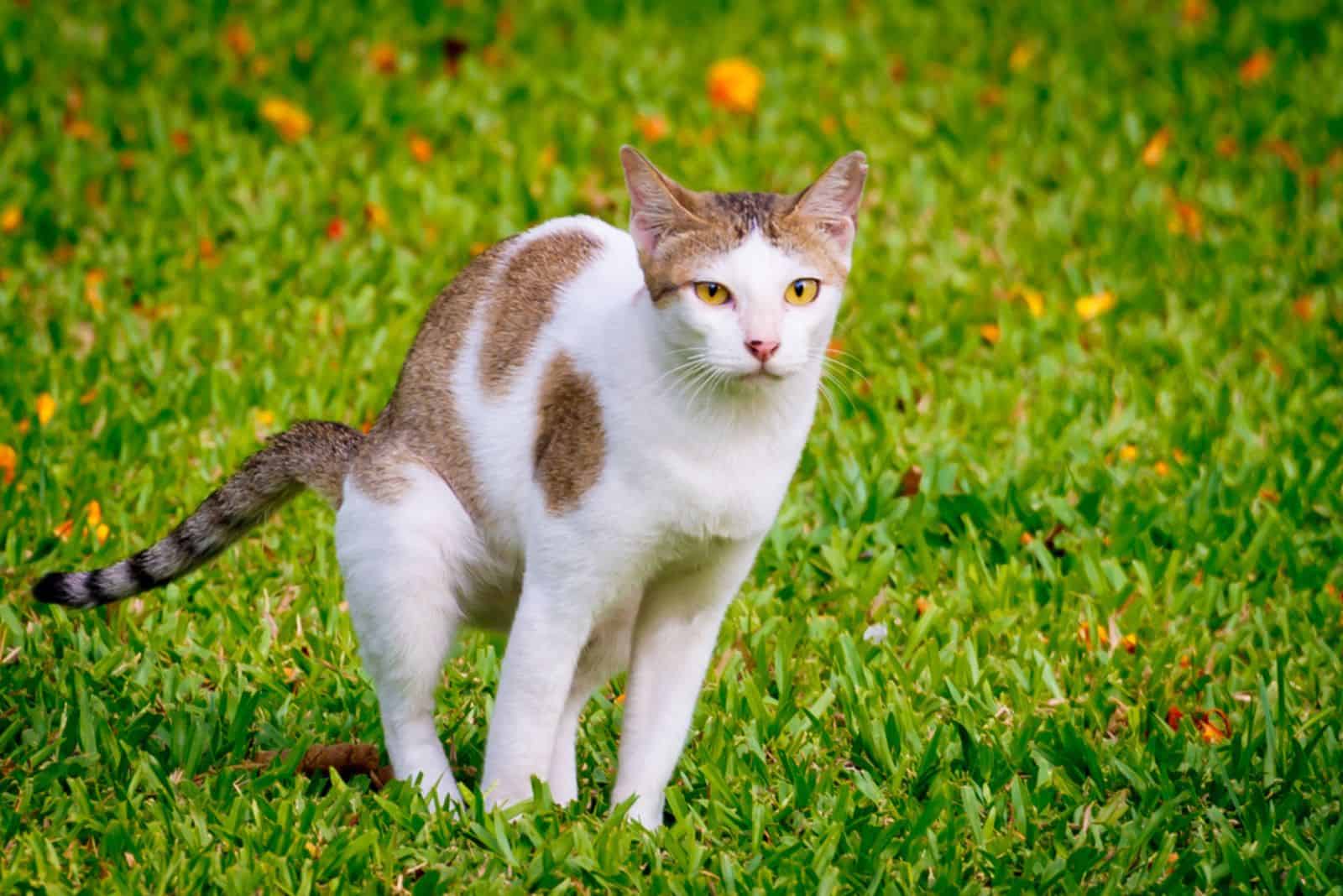
Normal kitten poop should be firm, and brown, or light brown color, so all of the other poop colors that I’m about to mention indicate that the kitten is suffering from certain health issues.
Read on, as it’s also important to know what kitten poop shouldn’t look like.
• Red poop color – if you notice that your kitten’s poop is red, you should immediately take it to the vet, as this is not a good sign. Red poop color usually indicates bleeding from the anus or rectum, possibly caused by bacterial infection or infectious disease.
• Orange poop color – if your kitten has orange poop, it’s usually due to certain types of food that contain food additives. However, in more serious situations it may be due to health issues such as liver problems, problems with the digestive system, or gallbladder issues.
These conditions are usually followed by certain symptoms such as vomiting, diarrhea, weakness, lethargy, loss of appetite, and similar.
Therefore, as soon as you notice any of these symptoms, it means that you should take your furball to the vet.
• Green poop color – a green cat’s poop may happen due to the cat eating grass, but it could also indicate issues such as parasitic or bacterial infection due to consuming contaminated food or water. This also requires a vet visit, so that the kitten can be treated properly right away.
• Black poop color – black poop is as serious as red poop, which means that the kitten requires an immediate vet check. This poop color usually indicates bleeding from the gastrointestinal tract, and it’s usually accompanied by symptoms such as vomiting, weight loss, loss of appetite, weakness, and similar.
• Yellow poop color – even though a normal kitten poop may appear to be yellowish in color, if it’s accompanied by other symptoms, it may indicate liver problems which require a proper examination.
• White poop color – white poop color is not normal in kittens or cats, and it can indicate intestinal parasitic infection, or point to liver or gallbladder issues.
Now that you know what a normal kitten poop should and shouldn’t look like and the underlying causes of these other poop colors, it will be much easier for you to determine whether your kitten has a healthy stool or not and when it requires special help.
Other Cat Poop Issues
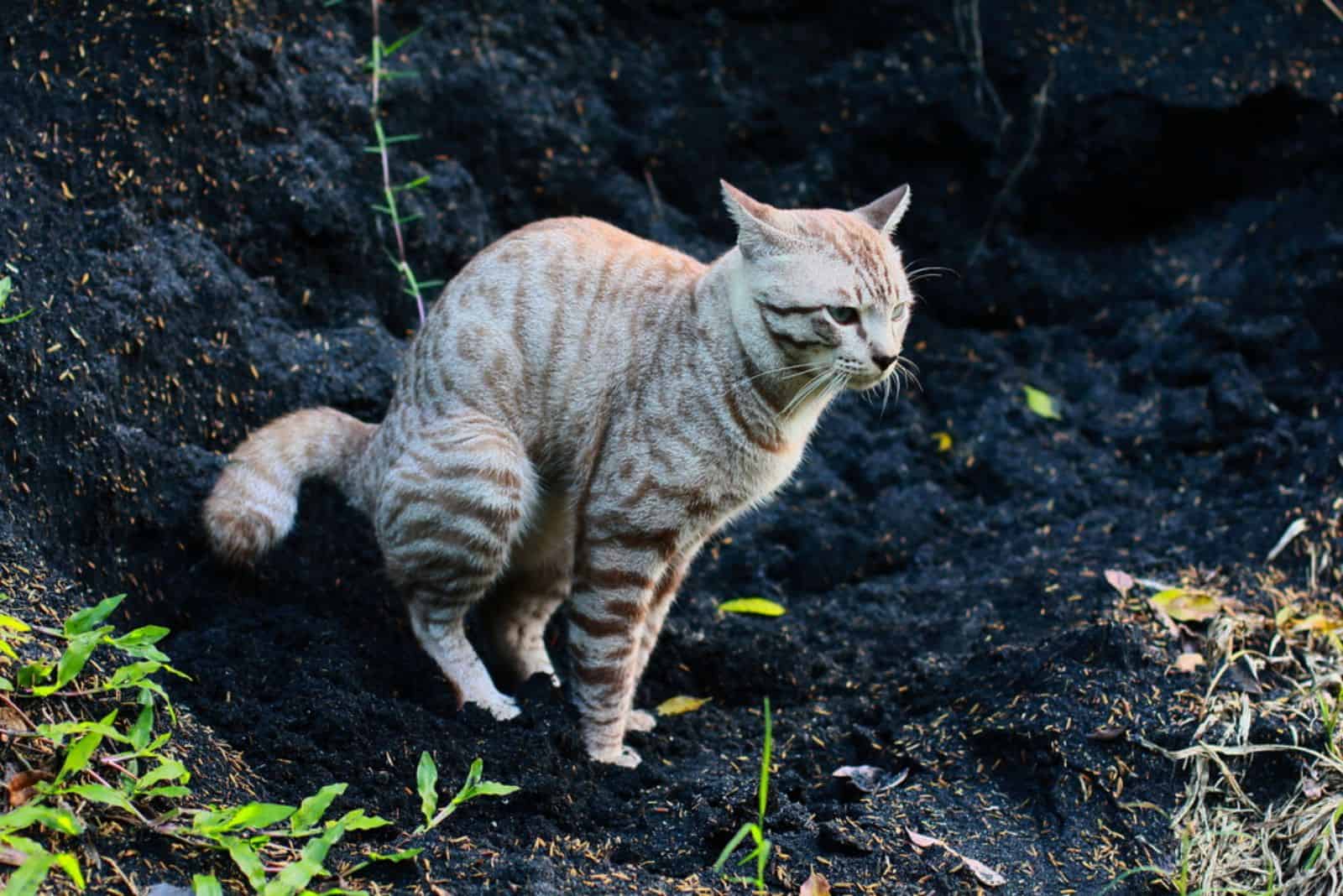
Besides these colors, kittens may experience other poop issues which require special and professional help. If the kitten’s poop isn’t firm or brownish in color, it means that something’s wrong.
So, read on and find out what other poop issues kittens may experience.
Constipation
One of the issues that your kitten may face is constipation, especially when it is just a few weeks of age. If the kitten hasn’t defecated for more than 2 days, it’s possible that it is suffering from constipation and it should go for a vet-check.
If your kitty suffers from constipation, it may mean that the kitten has a parasitic infection, fleas, dehydration, or that it suffers from an intestinal blockage due to an improper diet or hairballs.
A vet will be able to determine the exact underlying cause and treat the kitten effectively.
For example, if a parasitic infection is , the vet will provide the cat with a deworming medication, whereas if the issue is due to a poor diet, the vet may provide you with a special diet plan or specialist food for your pet.
The vet may also prescribe you probiotics for your kitten’s digestive health and recommend using wet food as it’s higher in moisture.
In some cases, your vet may suggest a cat enema which involves fluid injections used to empty the cat’s bowel. However, don’t try to do an enema at home by yourself as it can be very dangerous. It is always best to leave it to the vet to decide what’s best for your kitten.
Diarrhea
If you notice that your feline friend has a watery stool, or is leaking brown fluid from the anal area, it usually means that the cat is suffering from diarrhea.
There are many things that can cause diarrhea in cats and kittens, including food, roundworms, tapeworm infections, bacterial infections, viruses, or inflammatory bowel disease (IBD).
First things first, it’s important to determine the exact underlying cause of the diarrhea. So, if the diarrhea doesn’t stop within a day or two, you will need to take the kitten to the vet for a check-up, as it can really dehydrate and exhaust your pet.
The vet will run some tests and, depending on the underlying cause, they will provide the kitten with the proper treatment, such as antibiotics for bacterial infections, a dewormer medication for parasitic infections, a diet change etc.
Diarrhea may be a common condition in orphaned kittens as many adoptive cat parents don’t know what to do. If they feed the kitten with cow’s milk or similar, the cat can really suffer.
Although some kittens and cats may like milk, cats are lactose intolerant which is why you should avoid dairy milk as a substitute milk for orphaned kittens, as it usually leads to pain in their stomach, diarrhea, or similar digestive problems.
If you have an orphaned kitten, you should feed it with a milk replacement formula which is designed especially for young kittens.
Cat Poop – Half Firm, Half Soft
If you notice that your kitten’s poop is half firm and half soft, it may be that the kitten has an upset stomach due to changes in their diet.
Some foods simply don’t suit cats, and as a result they may have half firm, half soft stool or abdominal discomfort.
Aside from possible changes in their diet, this poop consistency may be a result of the kitten being traumatized or stressed.
Small kittens may be afraid or uncomfortable alone in the dark, or they may be stressed due to being separated from their littermates, being introduced into a new environment or similar changes.
In order to reduce that stress, it’s important to recognize what is causing the kitten stress, so you can reduce it.
Read Also: How Long Can A Cat Go Without Using The Bathroom? Explained
How Many Times A Day Should A Kitten Poop?
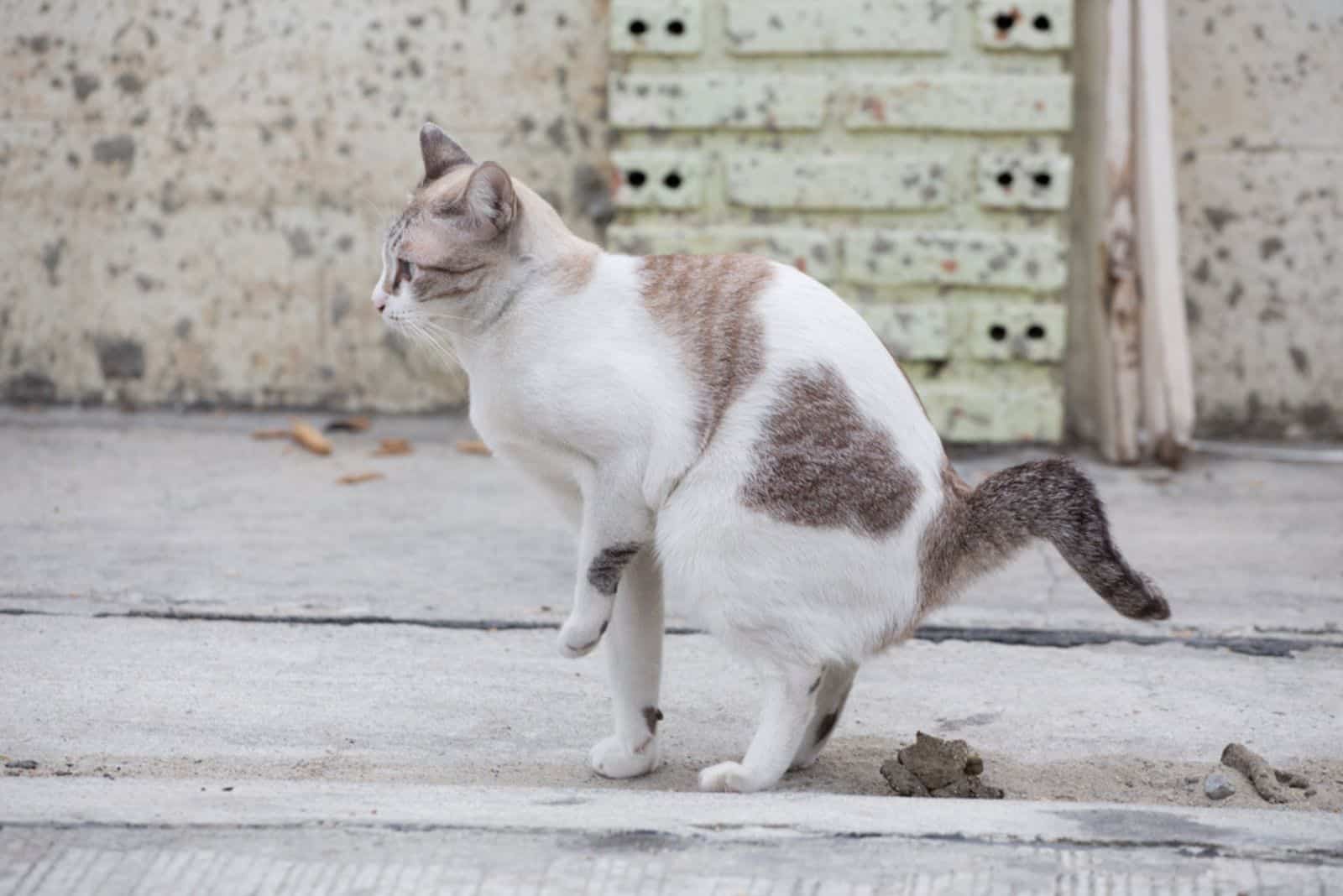
A normal, healthy cat should poop once or twice a day. However, if your cat doesn’t defecate for more than two days, that means that it is probably suffering from constipation and needs a vet-check.
If an adult cat poops more than two times a day, this is also a sign that something’s not alright. However, this is not the case with kittens.
Young kittens urinate and defecate with the help of the mother cat stimulating them, and she cleans them afterwards.
When they reach around 4 weeks of age, they start pooping and urinating by themselves, and at this point, healthy kittens should poop several times a day.
It’s completely normal for a kitten to urinate or poop after each meal, as its digestive system isn’t developed enough yet to deal with solid food.
Still, you need to be extra careful to pay attention to the color and consistency of the kitten’s poop, so that you can act on time if the kitten suffers from certain health issues.
As the kitten grows older, the pooping should decrease. If the kitten has difficulties with pooping or doesn’t poop at all, that means that it needs your assistance and you should stimulate it as the mother cat would do.
Keep reading to find out how to do this properly.
See Also: How Long Can Kittens Go Without Food? Everything You Need To Know!
3 Things You Should Do If Your Kitten Isn’t Pooping
So far, we have learned about when kittens start pooping and how they poop with the help of the mother cat.
However, orphaned kittens may have more difficulties with defecating, and that’s where you come in. Here are 3 things you should do if your kitten isn’t pooping.
Use A Cotton Ball!
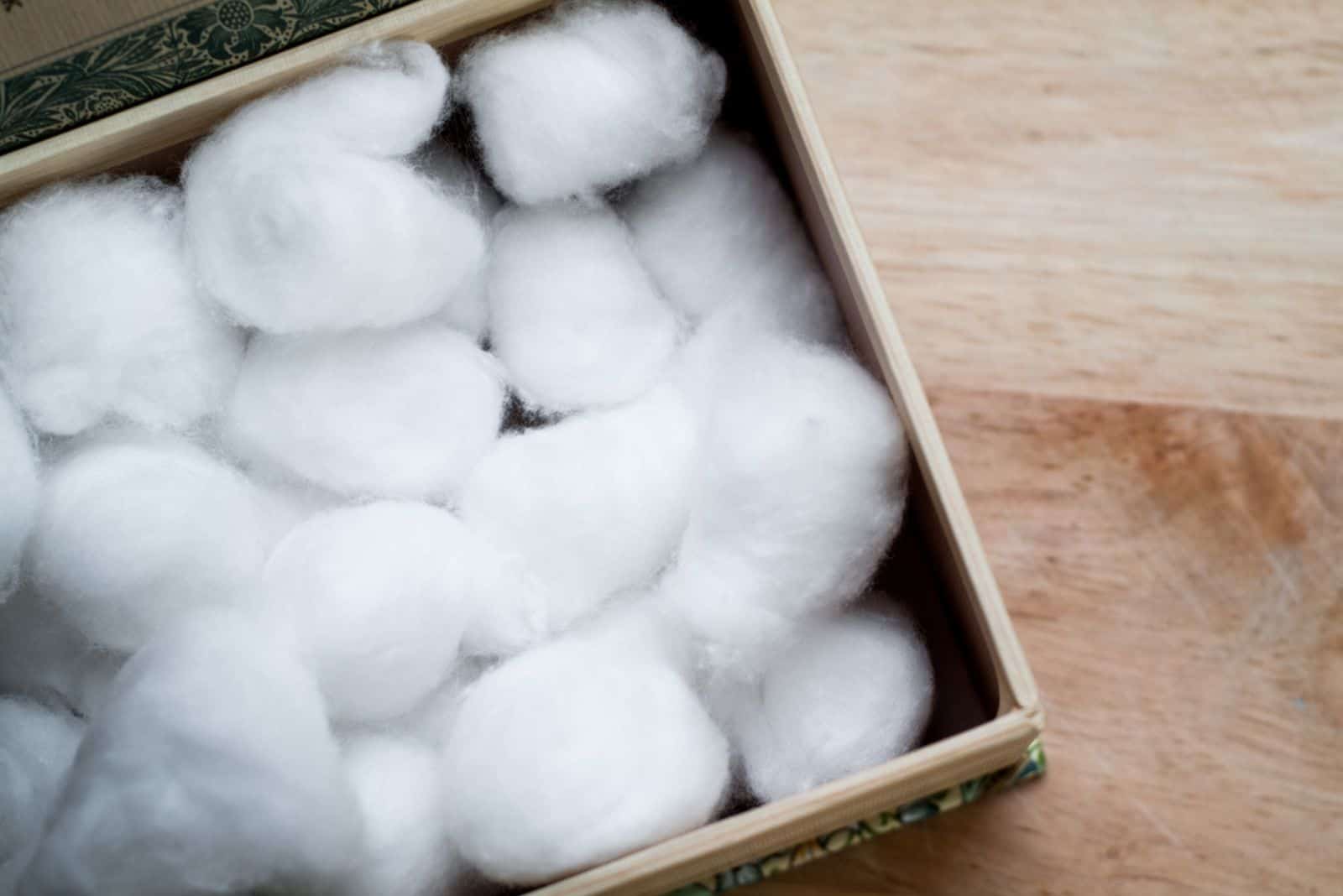
Normally, a mother cat stimulates their kittens to poop by licking them. Therefore, if you have an orphaned kitten you should try to find a way to mimic that. The best way to do this is by using a cotton ball or washcloth.
Wet a cotton ball or washcloth with warm water and softly rub the kitten’s lower belly after each meal.
Be careful not to rub for too long as that could irritate their sensitive skin. If you do everything as you should, the kitten should start defecating after a minute or two.
In some cases, the kitten may throw up after eating, and if this happens, try switching the order – first stimulate it and then feed it!
Clean The Kitten Thoroughly!
After the kitten defecates, the mother cat normally cleans them by licking them. So, this is another thing you should do as a kitten parent.
Just use a soft, clean cloth or special pet wipes (never use any other kind of wipes), and gently clean up the kitten, especially around the genital and anal area.
It is a good idea to track down the number of daily bowel movements as well as the type of poop, its color and consistency, so that you can easily notice any changes.
Use The Right Kitten Food!
If you bottle feed your furry little baby and it doesn’t defecate properly, the issue may be with the kitten milk, or kitten food.
The most important thing is to avoid the use of cow’s milk or any other types of milk. You should feed the kitten only with a milk replacement kitten formula that is specially formulated for kittens.
If you’re not sure which replacement formula to use, then you can consult with your vet about it, and together make a decision on what’s the best for your kitten.
3 Signs That A Kitten Needs To Poop
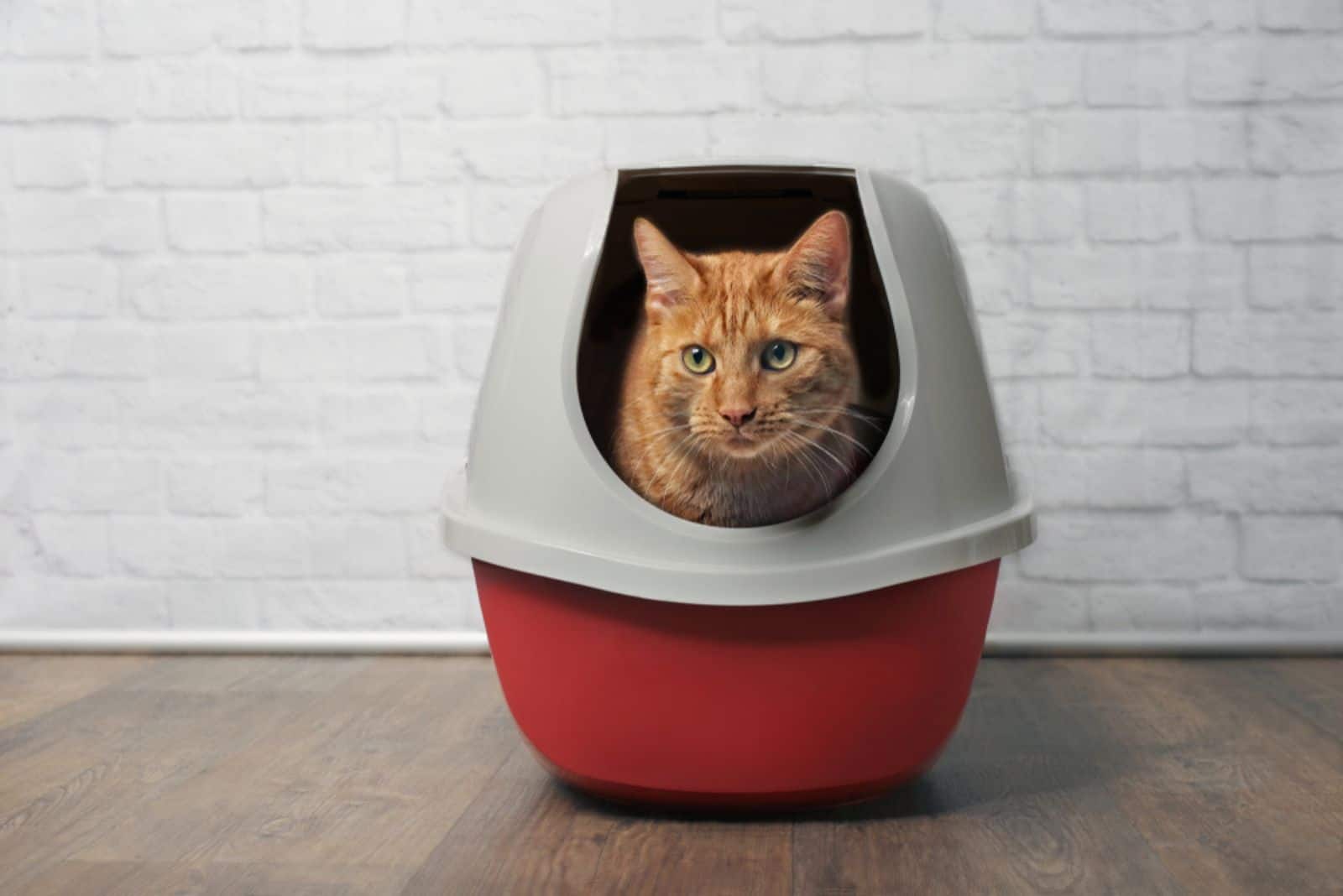
If your kitten isn’t litterbox trained yet, here are some signs that kittens may show before they poop or pee, which may mean that they’re ready for litter box training. So, check out these signs carefully as they’re an excellent introduction to training.
Kittens Digging Or Scratching Before Pooping
It’s very common for cats to dig a small hole where they leave their “mess” and then bury it.
This digging behavior is more common in outdoor kittens and cats, but indoor cats may display a scratching behavior with the same intention. However, even indoor cats may try to find a place to dig, such as digging and pooping in plant pots.
However, when the kittens reach the 4 and 5 week milestones, you should prepare the litter box and litter, and as soon as you notice digging or scratching behavior, take the kitten, put it in the litter box and leave it alone so that it can have privacy.
Excessive Meowing As A Pre-Pooping Behavior
This behavior is especially common in more talkative cat breeds, such as Siamese cats, Devon Rex cats etc. These chatty cats will definitely let you know when they need something or when they’re not satisfied.
Excessive meowing may be a sign that your kitten is about to poop, especially if it’s followed by digging or scratching behavior or if the kitten moves around in a circle.
Therefore, if you notice that your kitten is meowing a lot, try putting it into the litter box and see if they need to poop or pee.
Squatting – Taking The Position
Cats pee and poop in a squat position in order to align their bowels and prepare themselves for eliminating the waste.
If you haven’t noticed any of the previously mentioned signs, but you see your kitten squatting in a random place, it means that you have just seconds to prevent the kitten pooping on the floor randomly! Take it to the litter box right away.
Quick Tips For Litter Box Training
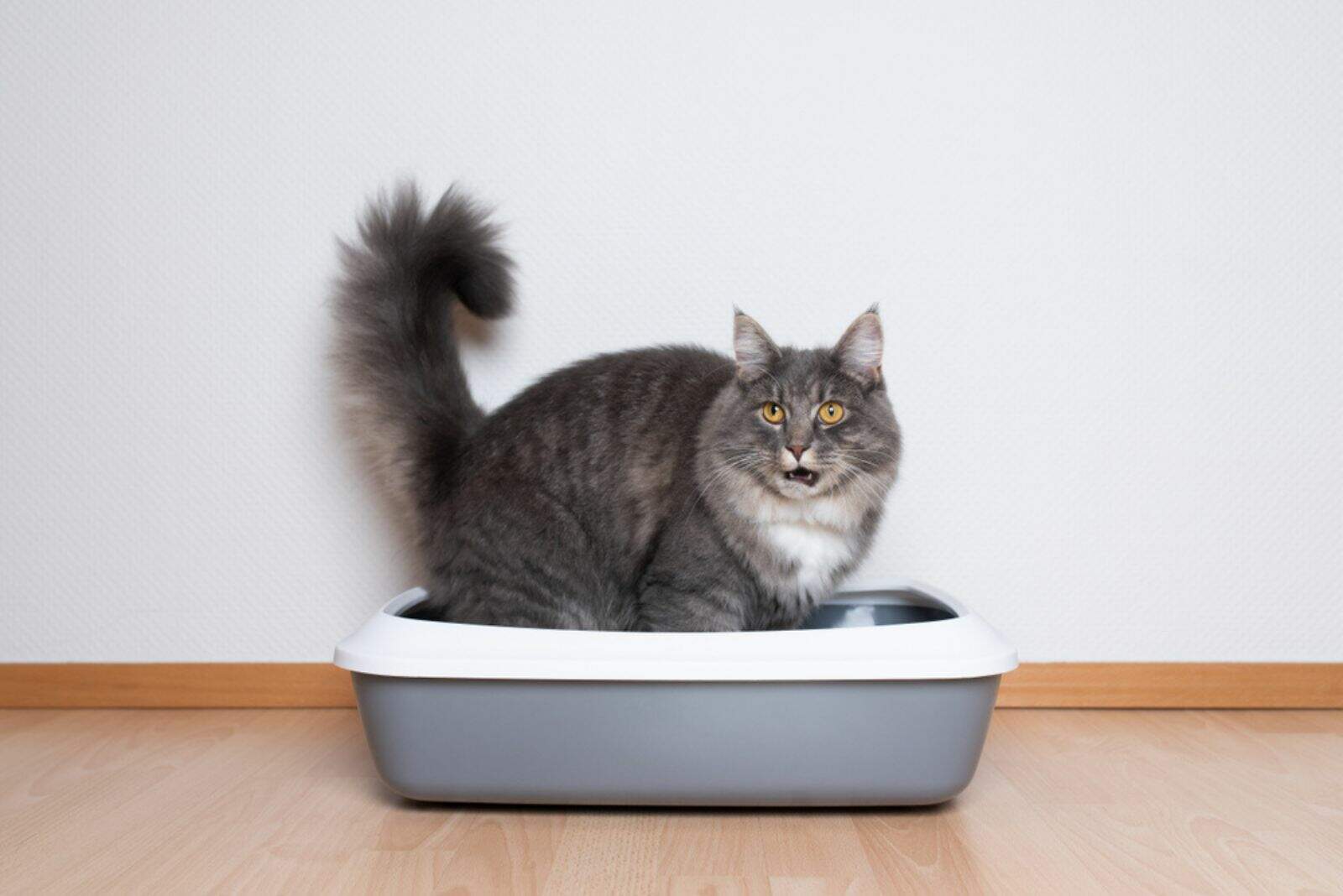
Kittens usually start urinating and defecating by themselves at 3-4 weeks of age. This is also when the weaning process begins.
As soon as they start producing their waste by themselves, they start showing signs like digging, scratching, meowing, and squatting.
With the appearance of these signs, you can conclude that your furry little kitten is ready to be litter trained. It’s so important to teach them good bathroom habits from a young age in order to avoid inappropriate urination or defecation.
So, if you think that your kitten is ready, then check out these quick tips as they may be really useful for training your kitten to use the litter box.
• Use a smaller litter box for your kitten so that it feels comfortable there.
• Provide the kitten with several litter boxes in places that are easy to reach, but calm and quiet.
• Don’t place the litter box near the kitten’s food and water bowls.
• Try putting the kitten in the litter box after each meal, and let it explore it.
• Avoid clumping cat litter in case the kitten ingests it accidentally.
• Remember to reward the kitty each time it uses the litter box properly, so the kitten will see the use of the litter box as something positive.If your little feline friend doesn’t immediately understand the purpose of the litter box, don’t give up!
Every kitten is different; some need more time to learn certain things, and others learn very quickly. The most important things to remember are patience, persistence and positive reinforcement; reward the kitten every time they do something right.
FAQ
Do Newborn Kittens Pee And Poop?
Yes, newborn kittens pee and poop, but newborn kittens cannot do it by themselves.
They are able to pee and poop only with special help, usually the mother cat who stimulates her kittens by licking them and warming them up in order to help them pee and poop.
If the kitten is orphaned, then you have to take on the role of the mother cat and mimic her stimulation to help the kittens relieve themselves.
Do Kittens Have To Poop?
Yes, kittens have to poop in order to eliminate their waste. Healthy kittens should urinate after each meal, and defecate several times a day.
However, if the kitten doesn’t poop for a day or more, it may be suffering from constipation, which requires a vet-check.
How Often Do Kittens Poop?
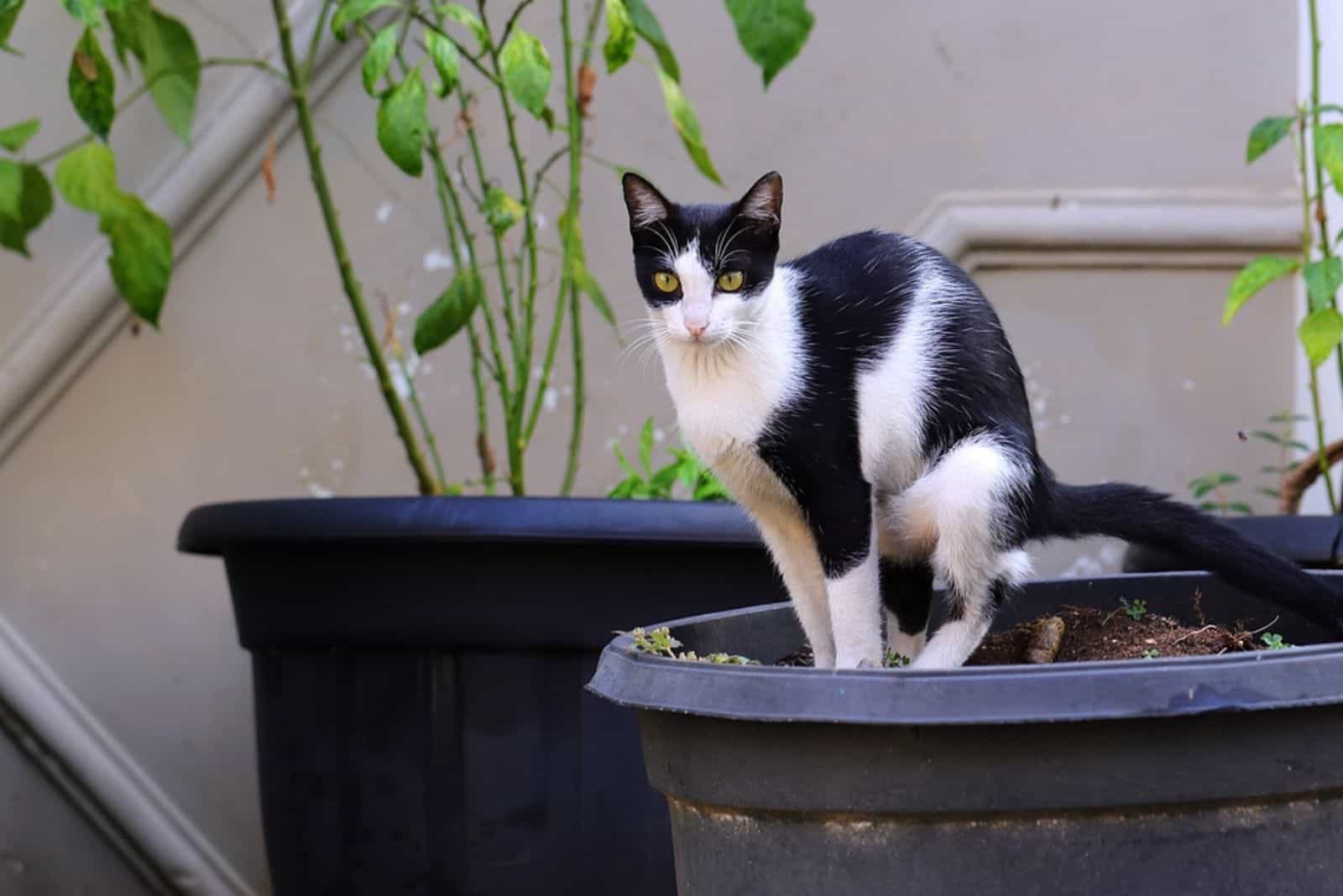
It’s normal for kittens to poop several times a day, or after each meal. As they grow older, the number of poops will decrease, as healthy adult cats should poop only once or twice a day.
What Should I Do If The Kitten Isn’t Pooping?
If the kitten isn’t pooping, you should try stimulating it to poop by using a warm cotton ball or a washcloth and massage it on the lower part of the belly. With that, you actually mimic a mother cat stimulating the kittens to poop or pee.
However, if the kitten still doesn’t poop, then you should take it to the vet for an examination as it may suffer from constipation or other health issues that require professional care.
Wrapping It Up!
This article provides you with the answer to your question – when do kittens start pooping? Hopefully it has also told you everything you need to know about kitten care and pooping.
Kittens cannot poop by themselves until they reach 3-4 weeks of age. Until then, a mother cat stimulates them to pee and poop. However, if the kitten is orphaned, then you should stimulate the kittens by mimicking the mother cat.
Finally, when the kittens reach 3-4 weeks of age, they’re able to pee and poop by themselves, and that’s when they’re ready to be litter box trained.
Good kitten care is very important, and you should know that a lot can be determined by the cat’s poop color and consistency, so make sure you pay attention to it.
Young kittens are sensitive and fragile as their immune system is still developing, so remember to take them for vet-check regularly and make sure they receive all the necessary vaccines.
With proper kitten care, your fur baby will grow fast, becoming a beautiful, strong feline friend for life!
Like this post? Share or pin it for later!
